“I was so happy. Finally free.”
Mimin never thought she would legally own the land she had worked for years. Like many in her community, she lived under constant threat of losing it. She was afraid to plant too much or invest too deeply. That changed when she received her land certificate, issued in her own name. Now, her fields are full of cassava, chilies, fruit, medicinal herbs, and rice. “I do not need to buy vegetables,” she says. “Everything is in the fields.”
In Gunung Anten village, Banten, Indonesia, Mimin is part of the Banten Peasants Movement, also known as P2B (in Indonesia, the word ‘peasant’ describes landless farmers). This farmers’ collective is reclaiming their land, restoring their ecosystems, and creating a future rooted in tradition and mutual care.
For decades, P2B farmers cultivated land they did not own. That changed in 2023 when they secured legal rights to 127 hectares through a community-led land redistribution effort in collaboration with the Consortium for Agrarian Reform (KPA).
KPA is a movement-based organization that promotes the struggle for agrarian reform in Indonesia through DaMaRa, an abbreviation for “Transformative Agrarian Reform Villages,” a community-led initiative to reclaim land and build sustainable economies from the ground up. Alongside KPA, P2B mapped their territory, filed claims and fought for their land. A third of the redistributed land is now managed by women, a quarter by youth, and the rest by men.
2023
secured land rights
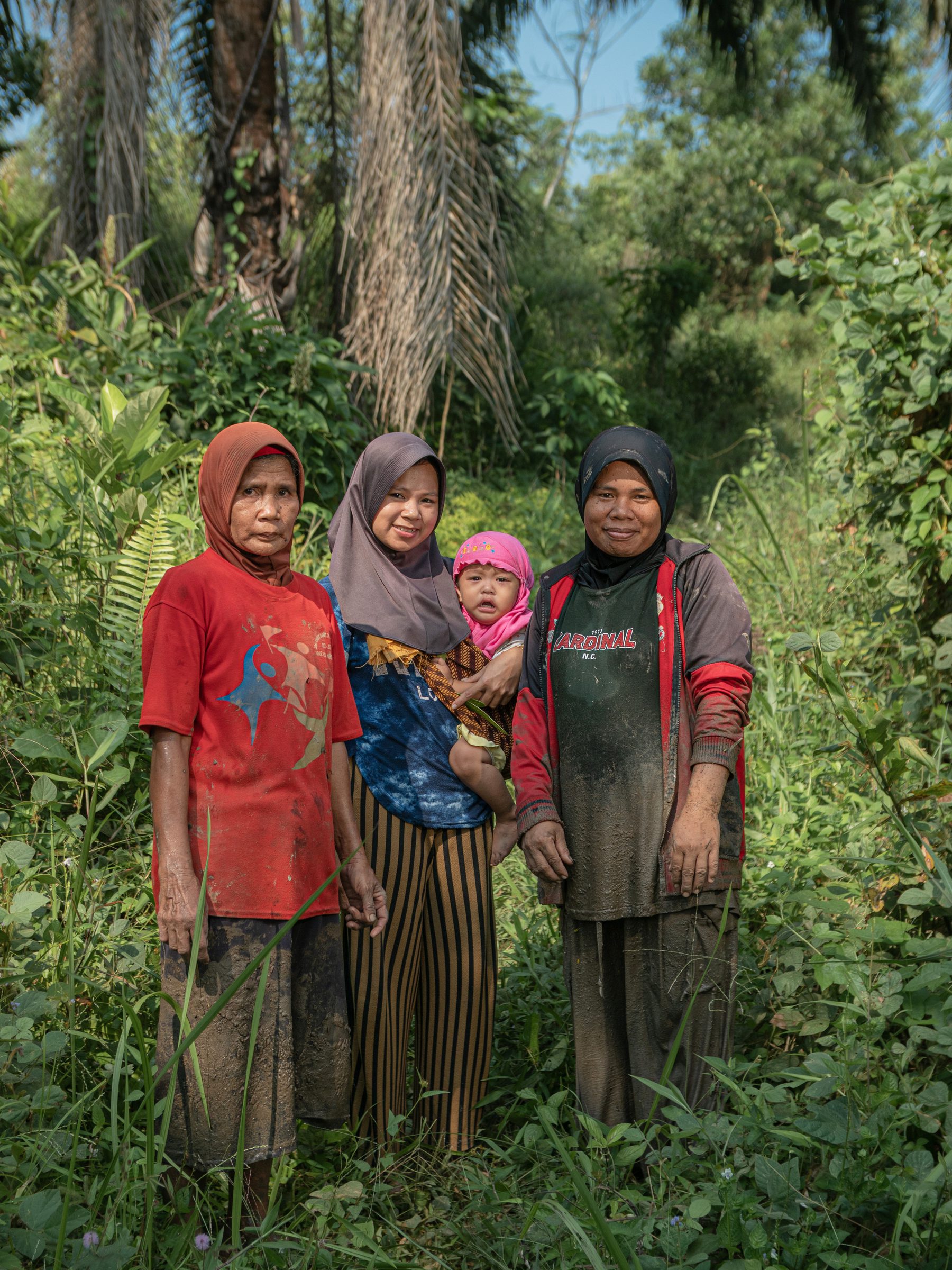
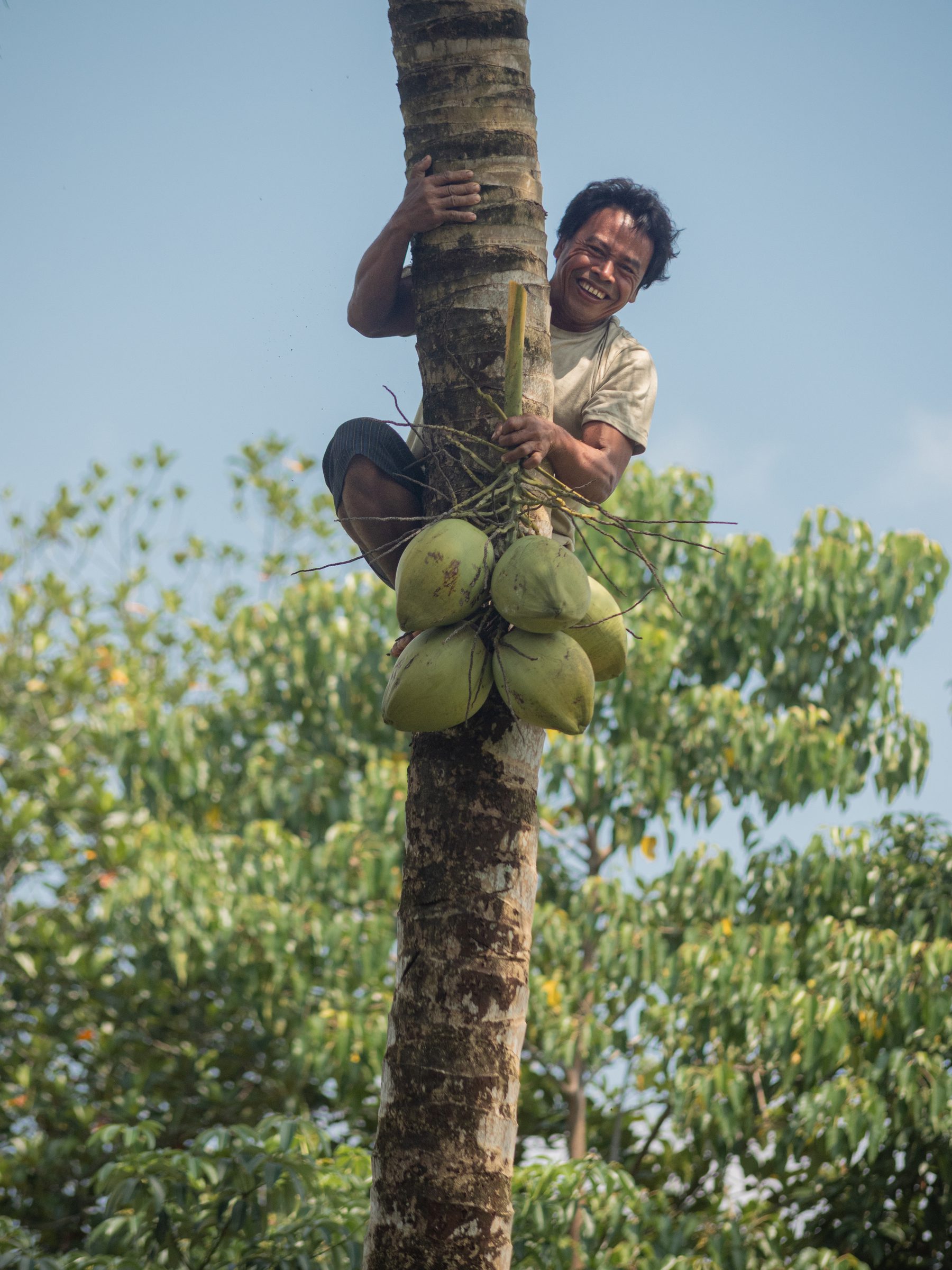
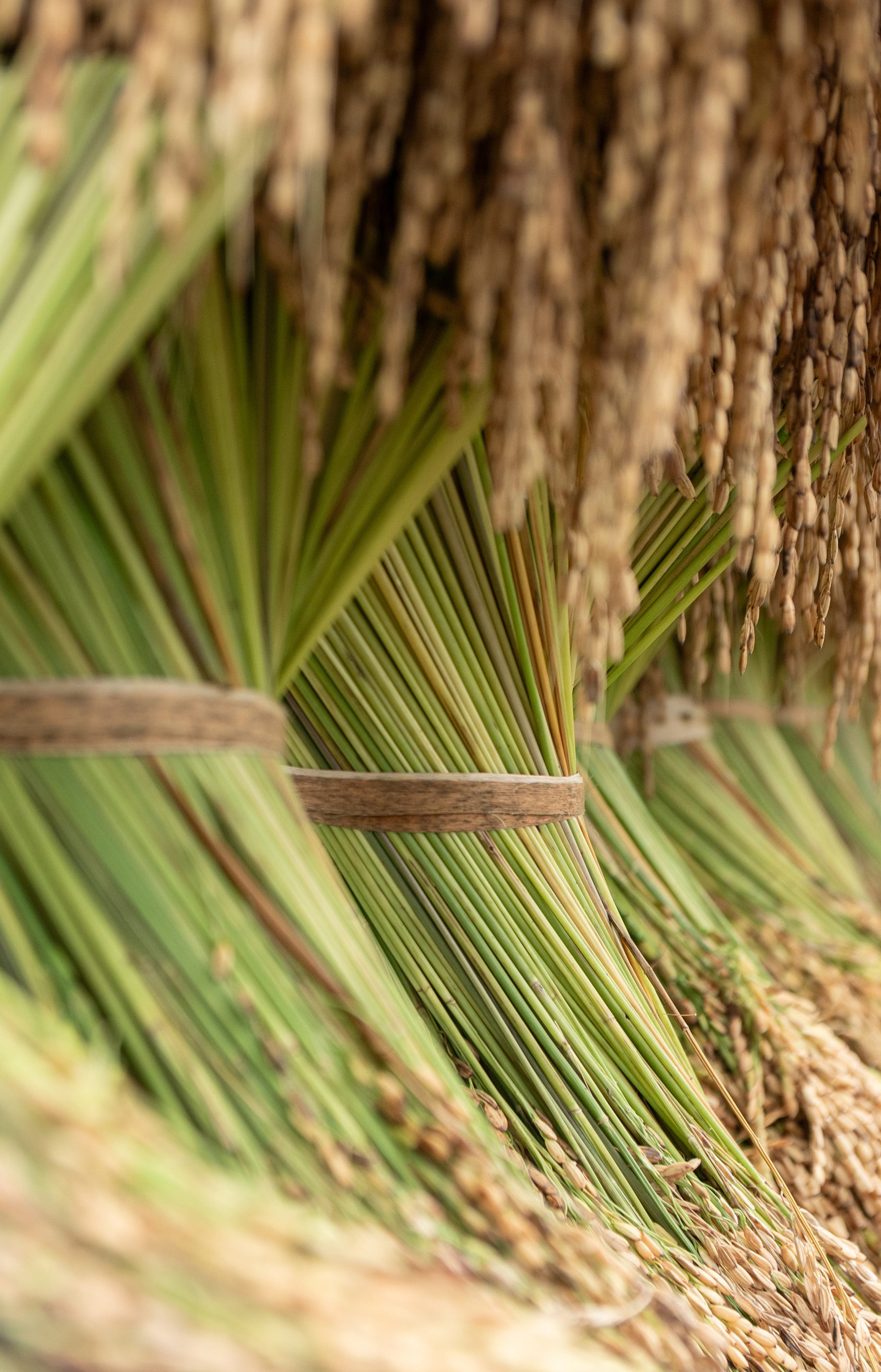
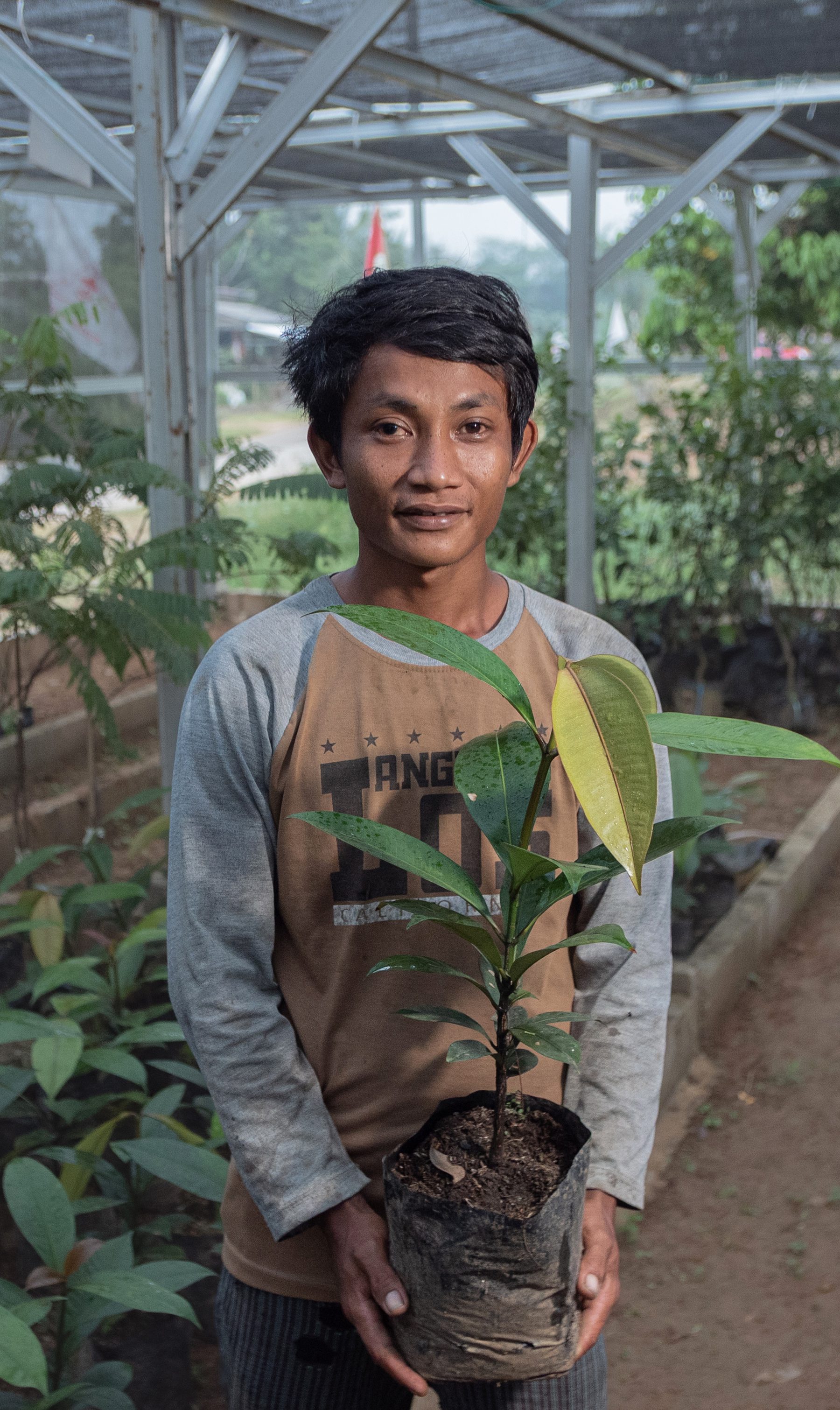
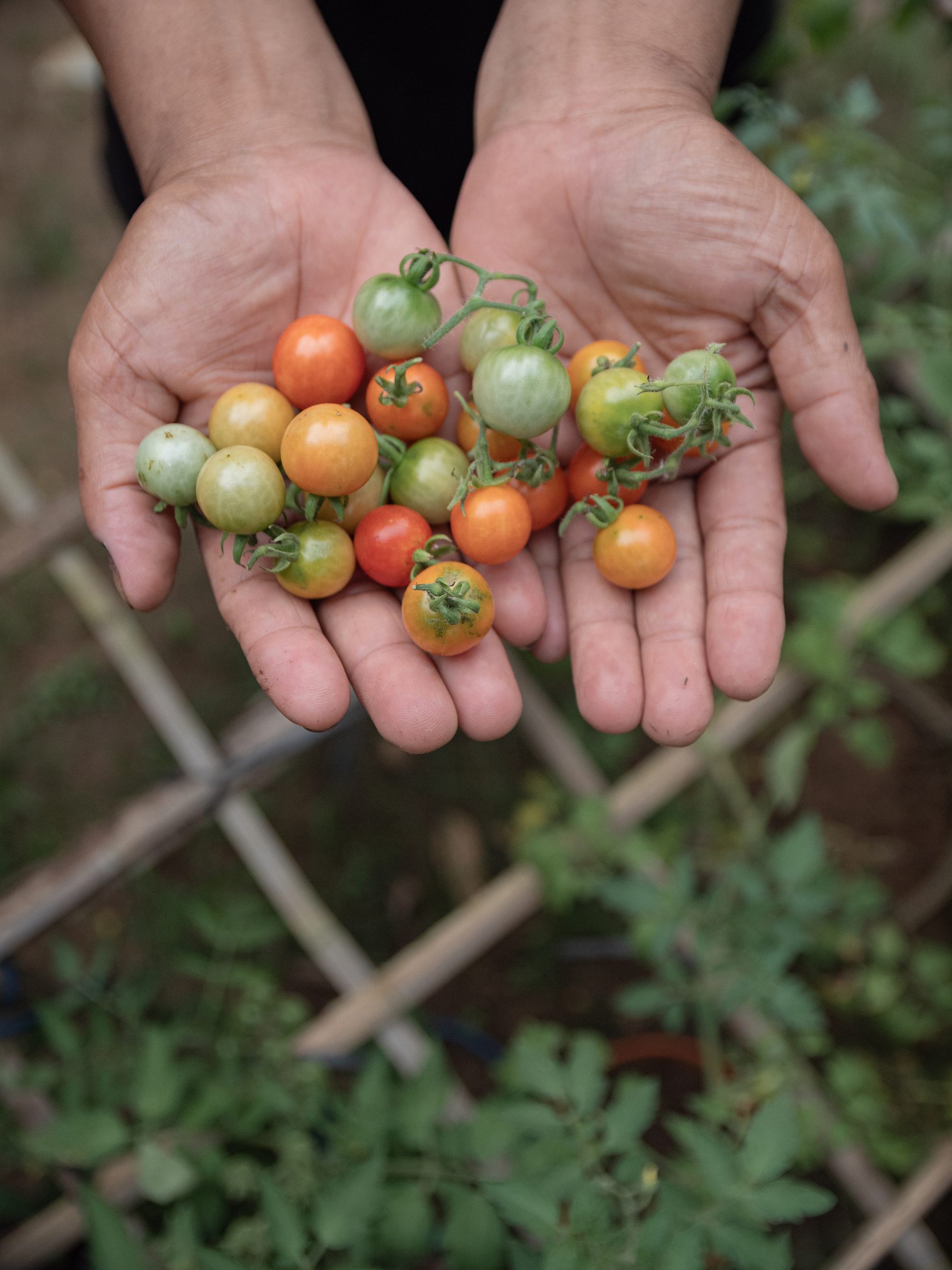
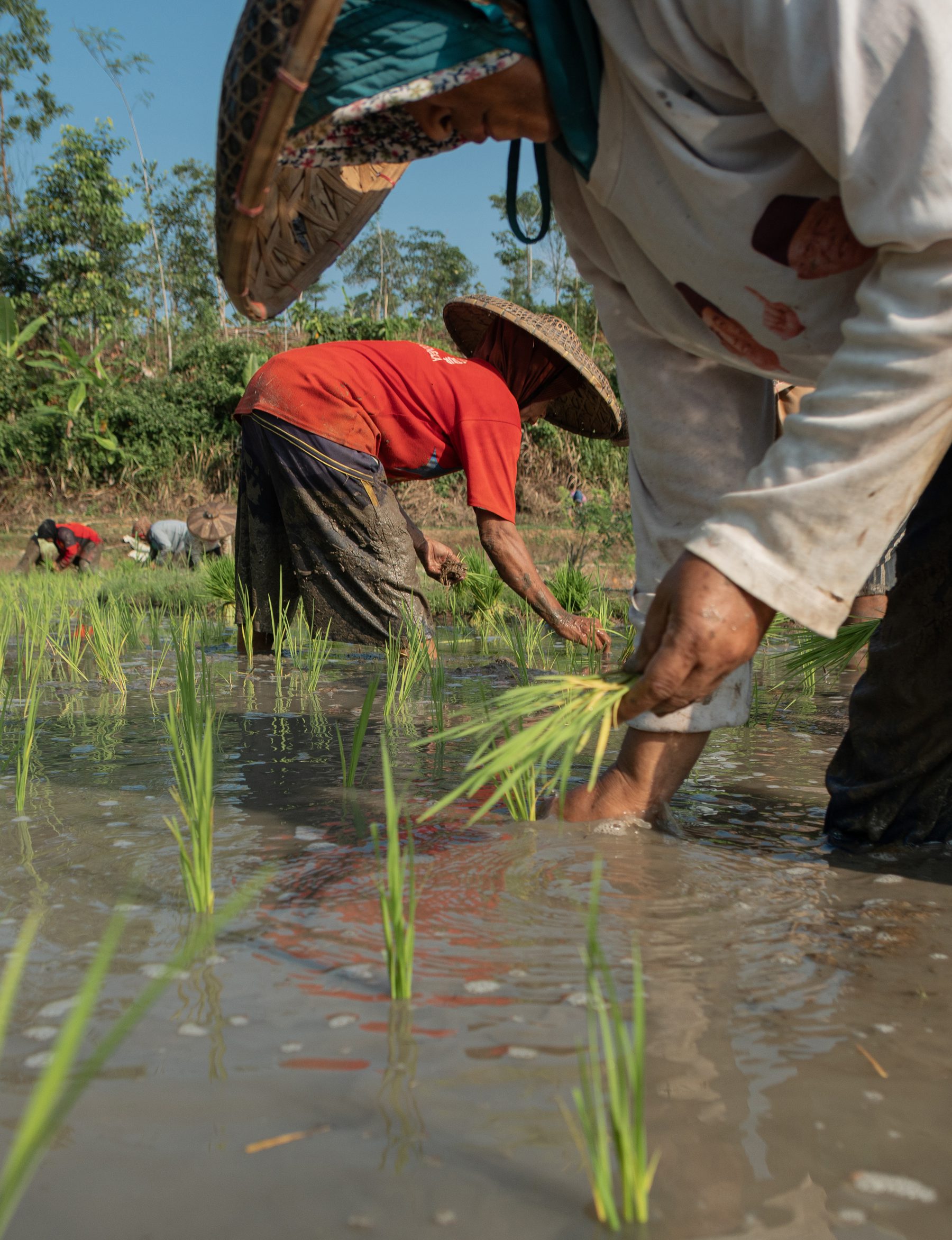
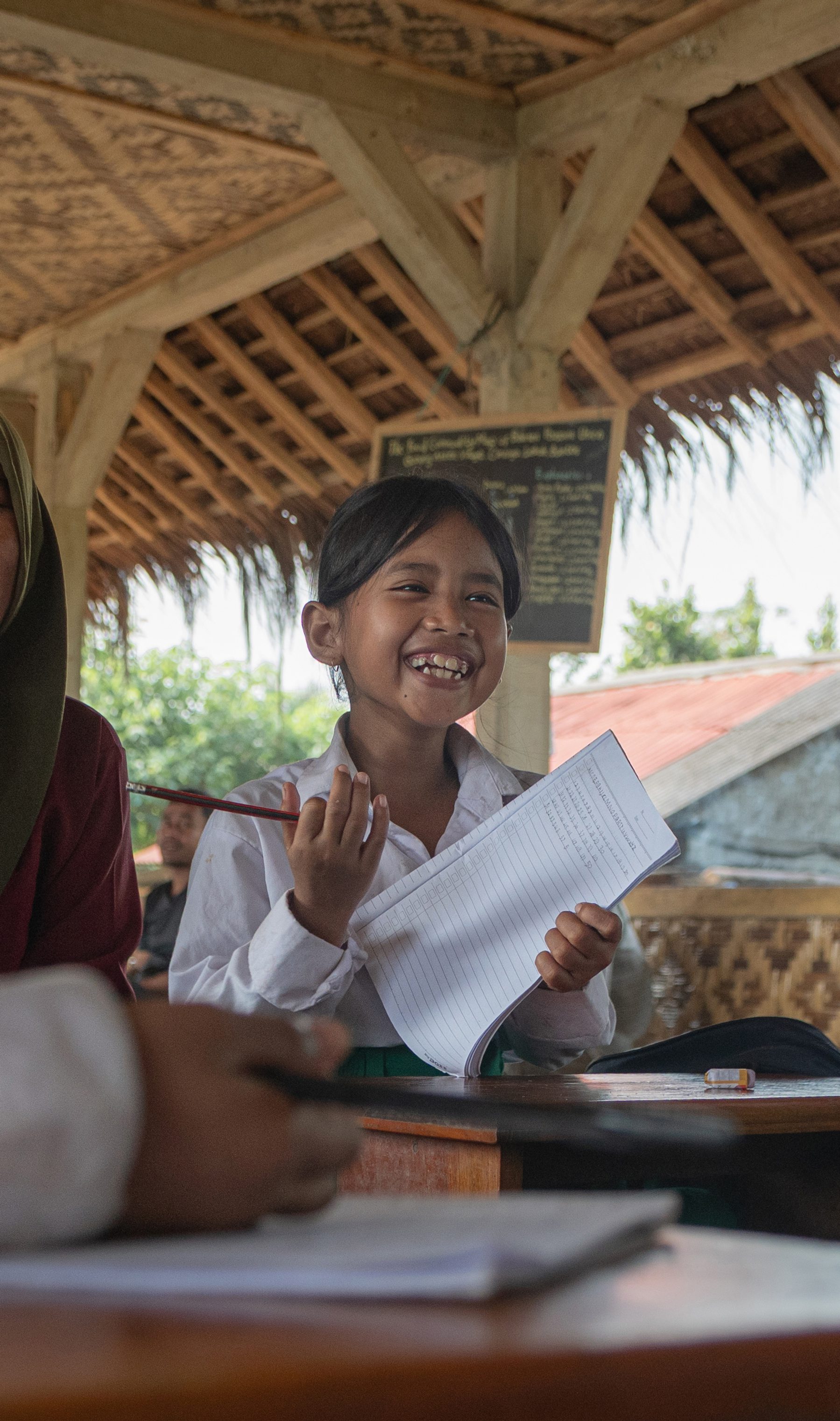
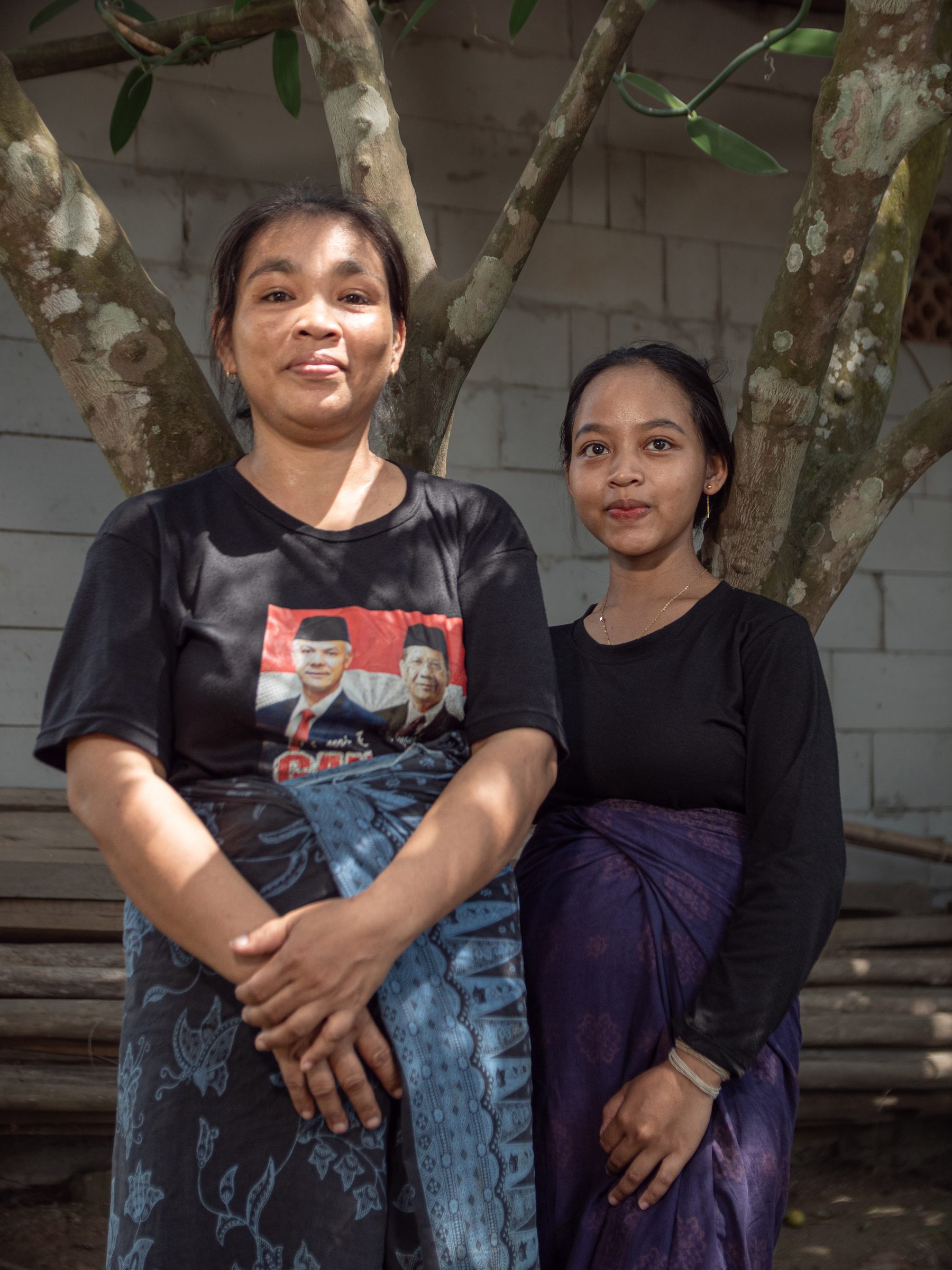
127
hectares of land
Since then, P2B farmers strengthened land governance and expanded education initiatives for organizational strengthening through support from the Nusantara Fund, a direct and flexible funding model designed to support Indigenous peoples, local communities, and grassroots organizations (including farmers, fisherfolk, women, and youth). P2B reorganized land use and production systems to maximize agricultural yields and established a community-led education space to sustain and support this work. As a community-led funding mechanism, the Nusantara Fund provides financial support, while KPA works closely with P2B to strengthen their organizing, map land collectively, and advocate for land rights.
Land redistribution in Indonesia is a process by which land is returned to farmers, Indigenous communities, and others who have long cultivated it, often without legal recognition. It corrects deep-rooted inequities by transferring ownership into local hands. This formally acknowledges their right to farm, live on, and care for the land.
Ownership has transformed more than livelihoods. It has restored dignity and opened the door for deeper resilience. With land in their names, P2B farmers now grow rice, root vegetables, spices, fruit trees, and native hardwoods using traditional methods like tumpang sari, natural pest control, and dryland farming. They sell the surplus, save the seeds, and pass down the knowledge.
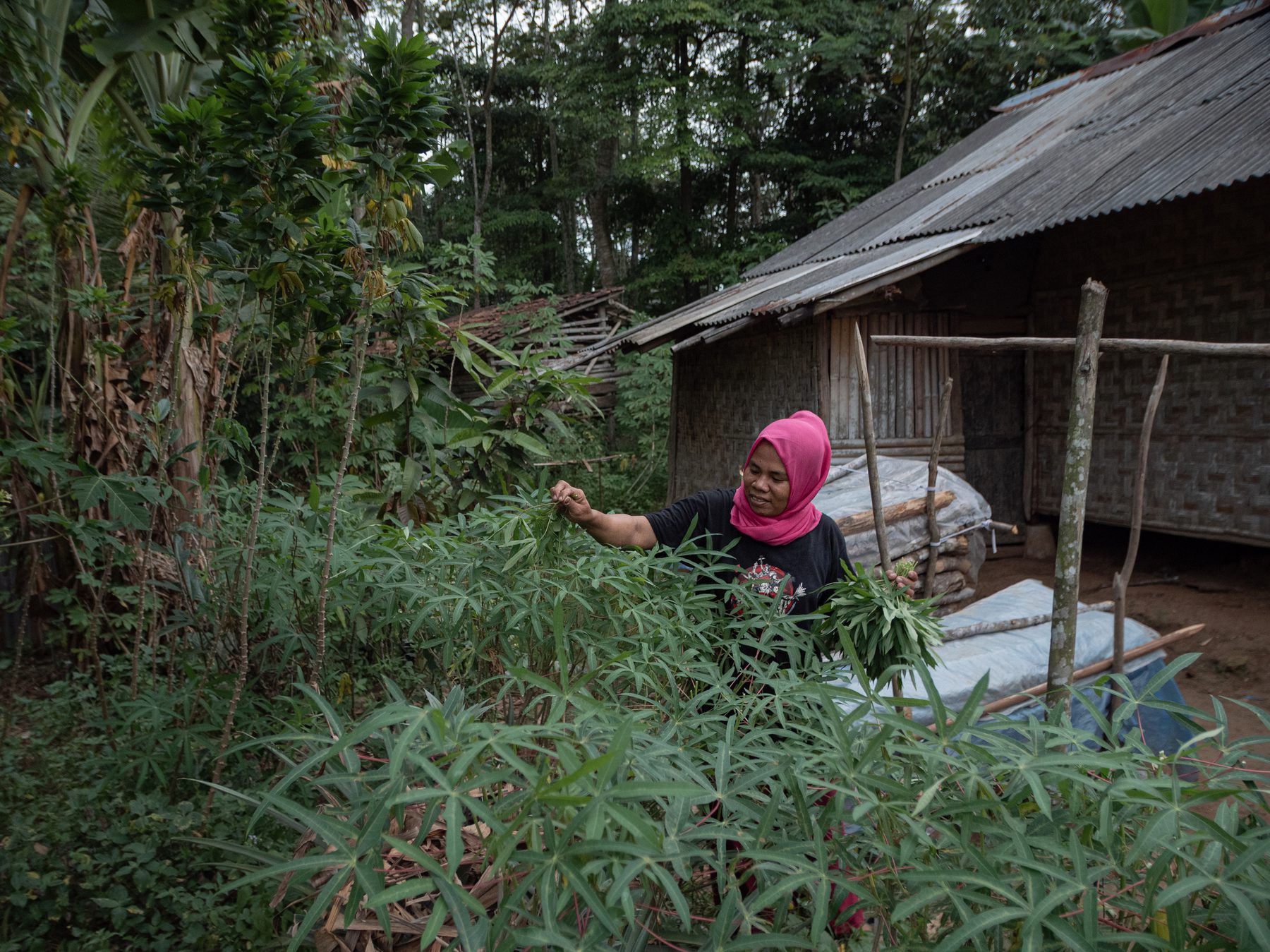
They have also adopted the Academy for Genuine Agrarian Reform (ARAS) initiative, a community-led education space where youth, elders, and women learn together about sustainable agriculture, seed saving, and land rights. It is a space of empowerment, especially for young farmers like Misnan, who began farming with his parents at age ten. Today, he manages 5,500 square meters and experiments with grafting, seedling nurseries, and organic pest control. “Farming is how we survive,” he says. “And how we learn.”
With support from the Nusantara Fund, P2B has launched seedling nurseries, livestock projects, and collective land initiatives. They have built a five-hectare shared farm whose yields support families in crisis. During the pandemic, they delivered food to urban workers in Jakarta.
The Baduy, an Indigenous community from Banten, shape P2B’s practices through long-held traditions rooted in ecological balance and collective living. These traditions emphasize gotong royong, which is mutual aid, and kagok rema, a cultural practice that discourages farming the same plot repeatedly. These practices help prevent soil degradation and encourage long-term stewardship. Their methods restore soil, reduce emissions, and support biodiversity, from pollinators to native trees like picung, which protect water sources and help prevent landslides. Research has shown that land managed by Indigenous peoples and local communities supports a healthier climate by preventing deforestation, supporting sustainable agricultural practices, and protecting wildlife. When communities control their land, they can make long-term investments in sustainable economic growth and climate solutions like renewable energy.
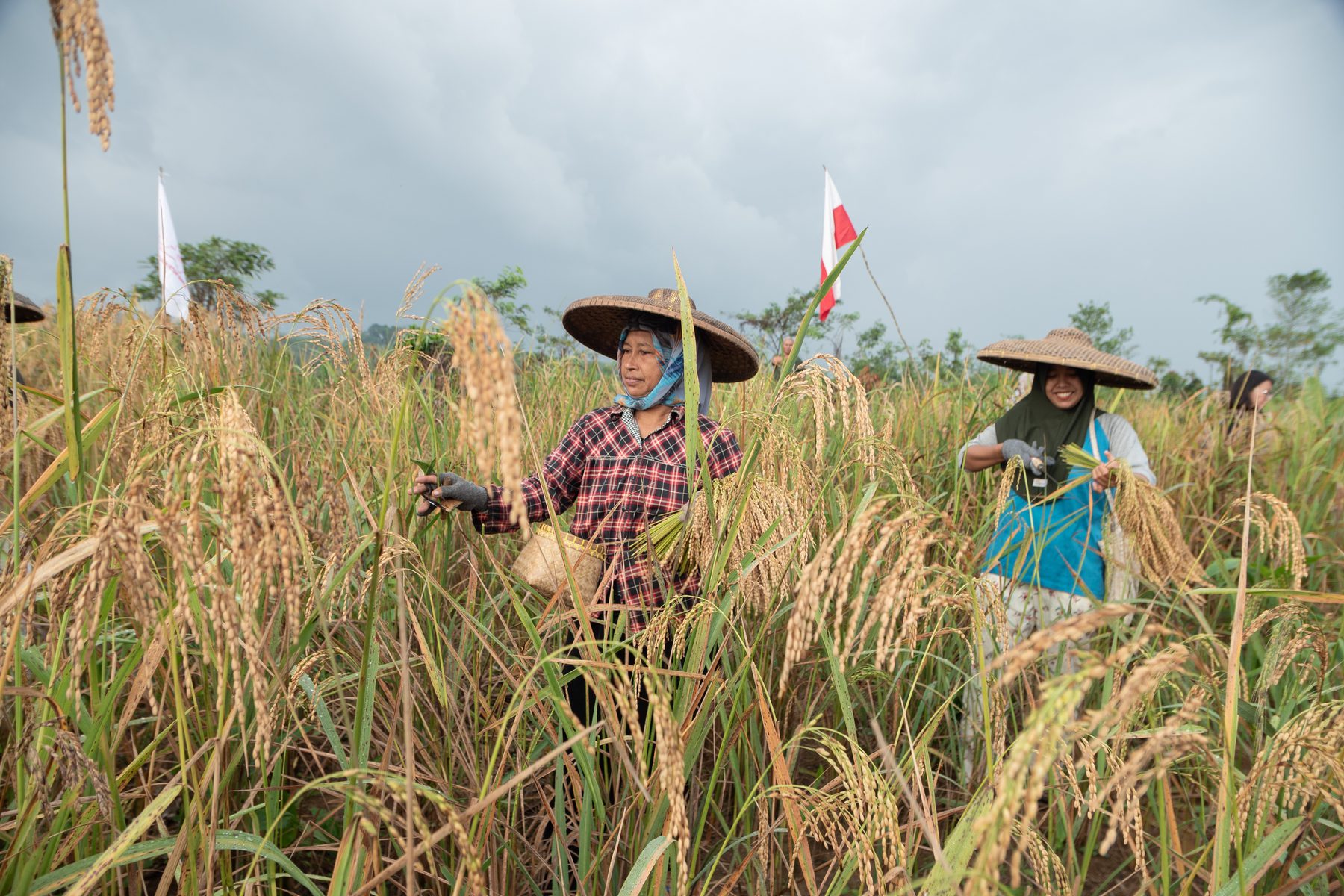
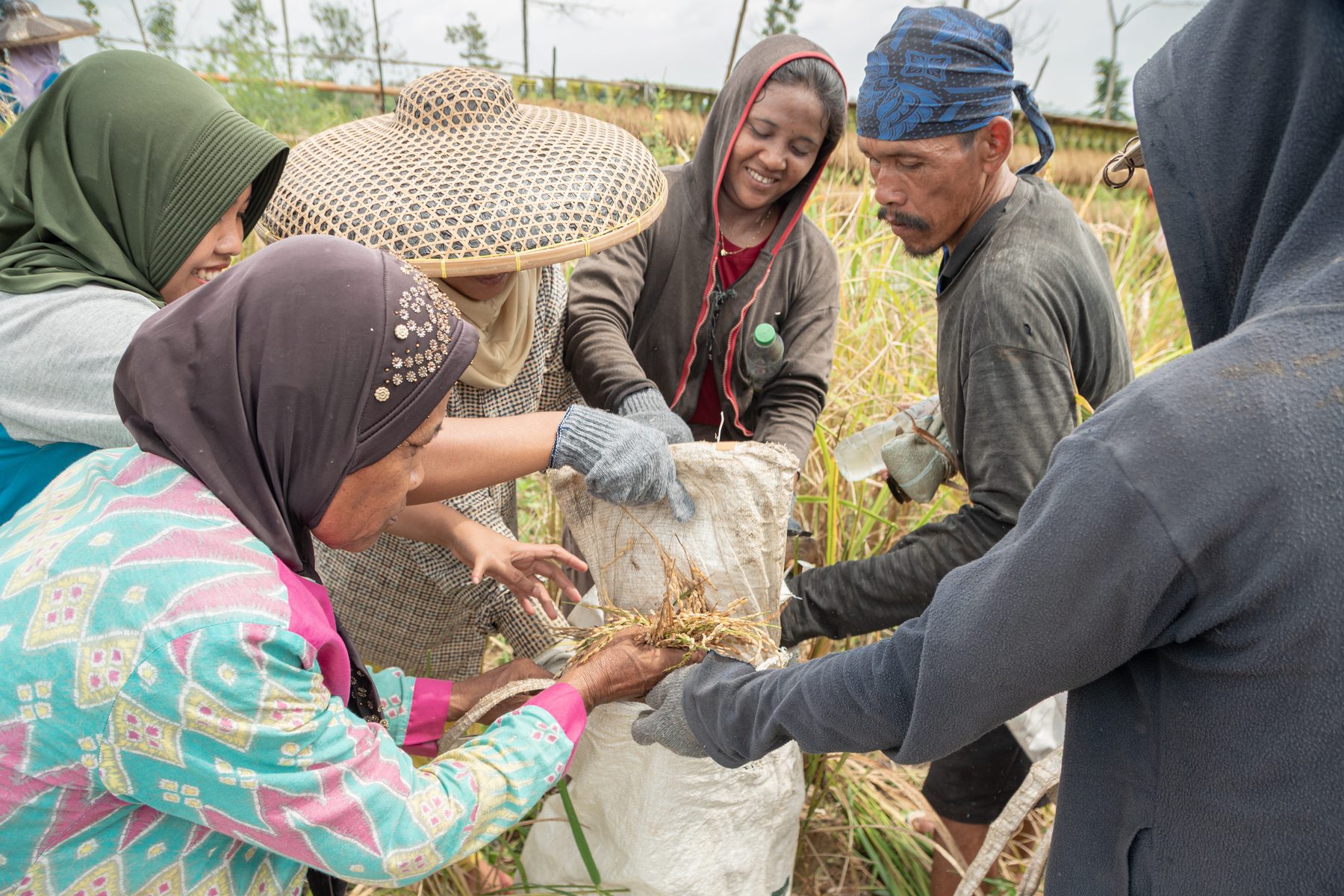
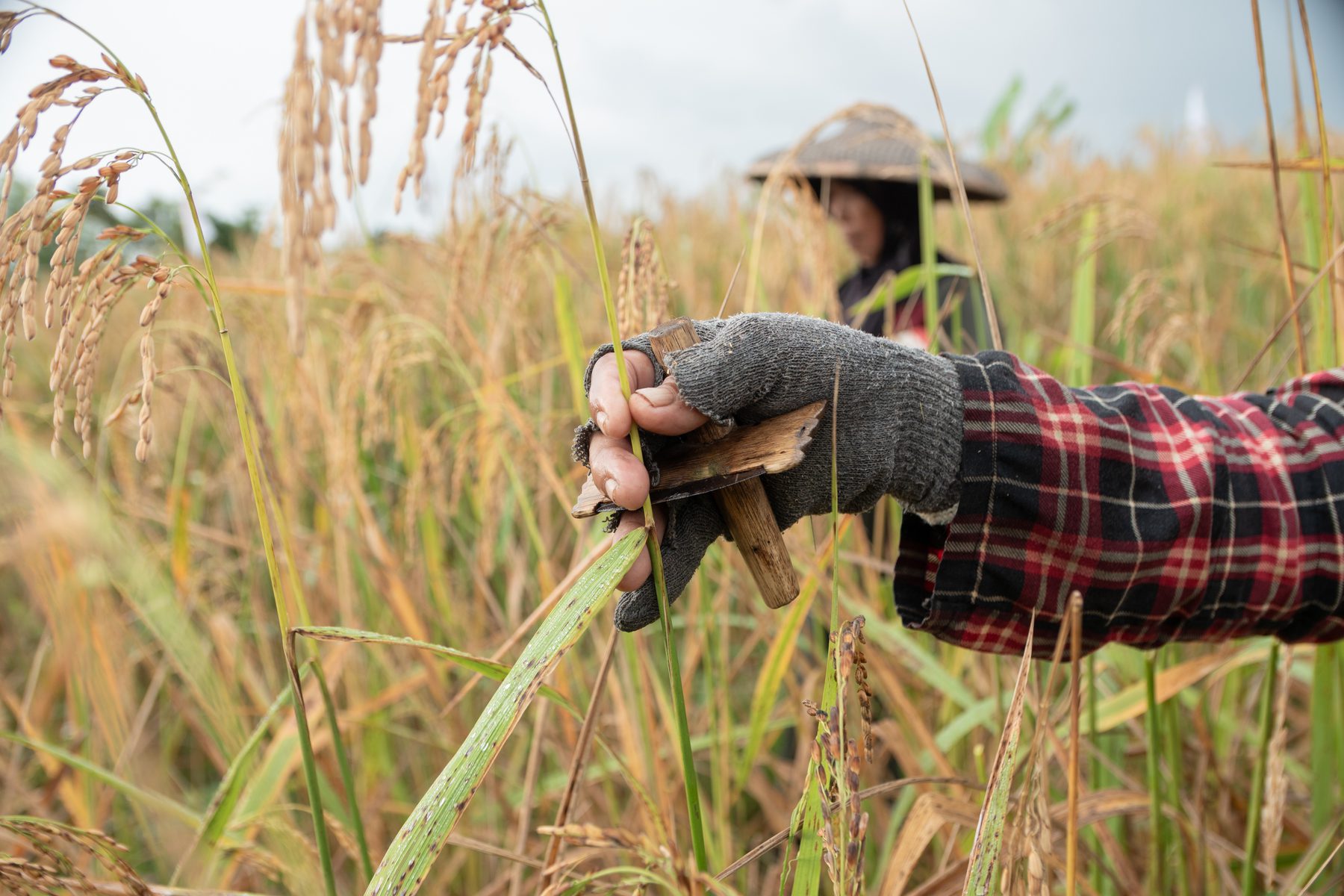
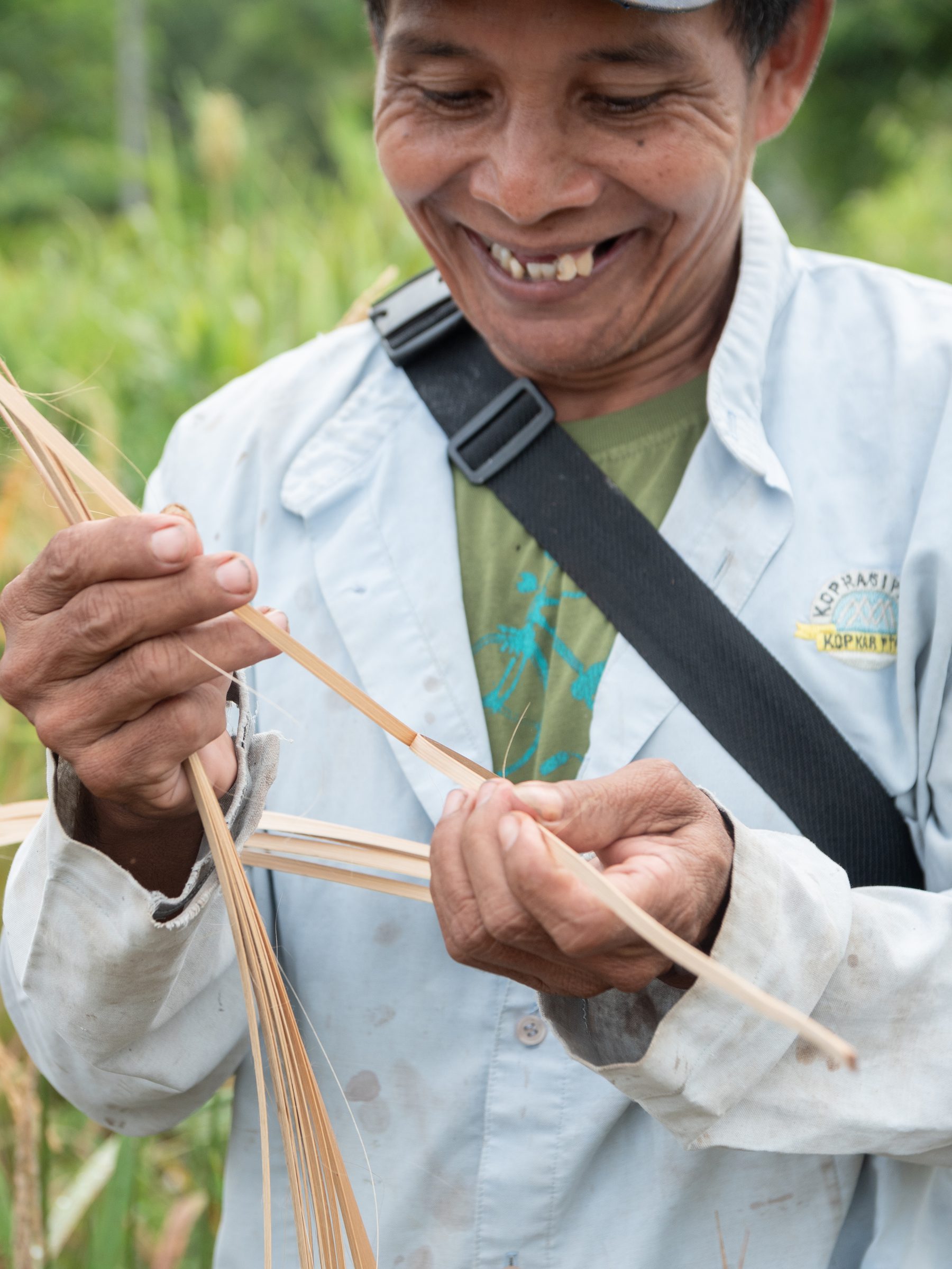
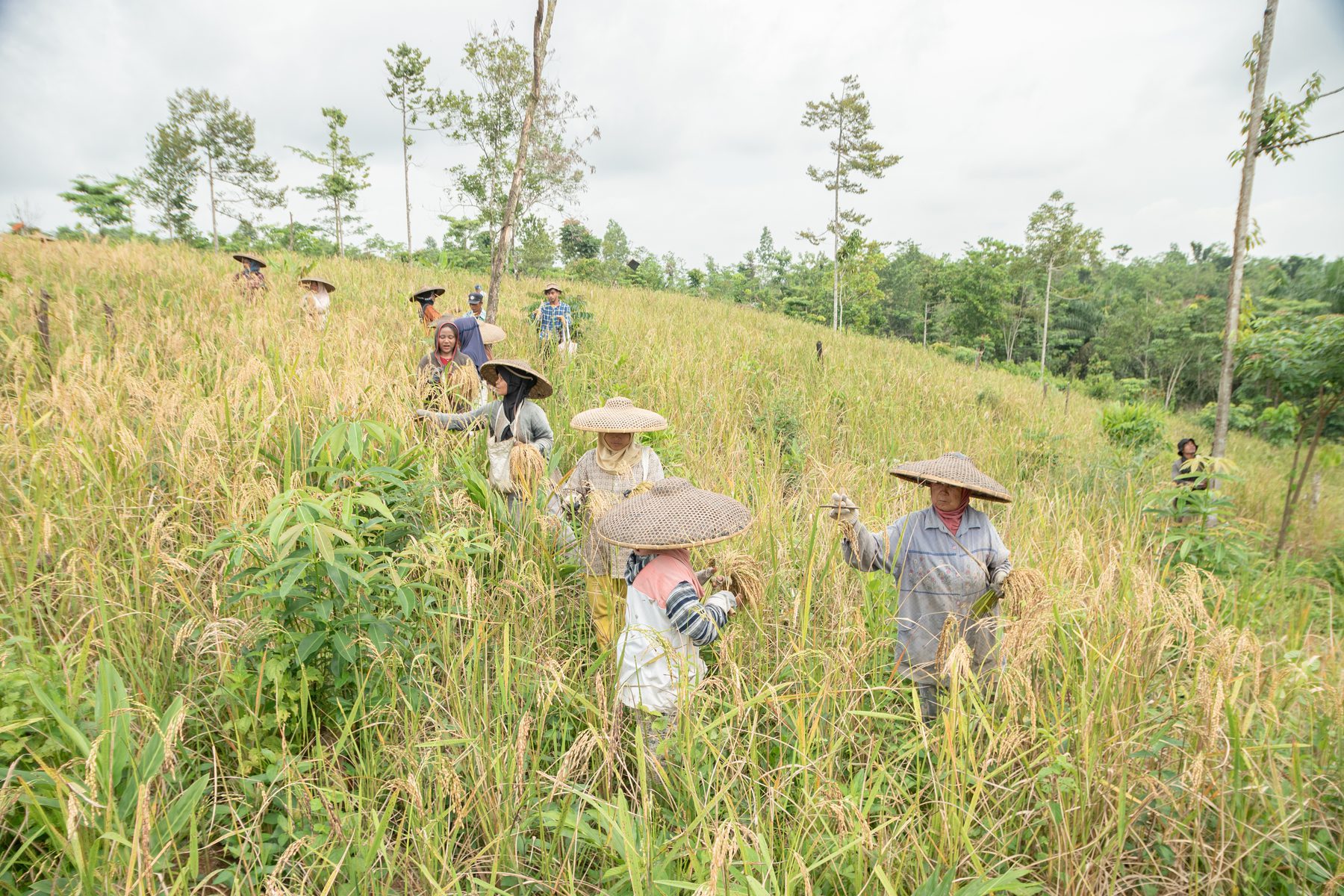
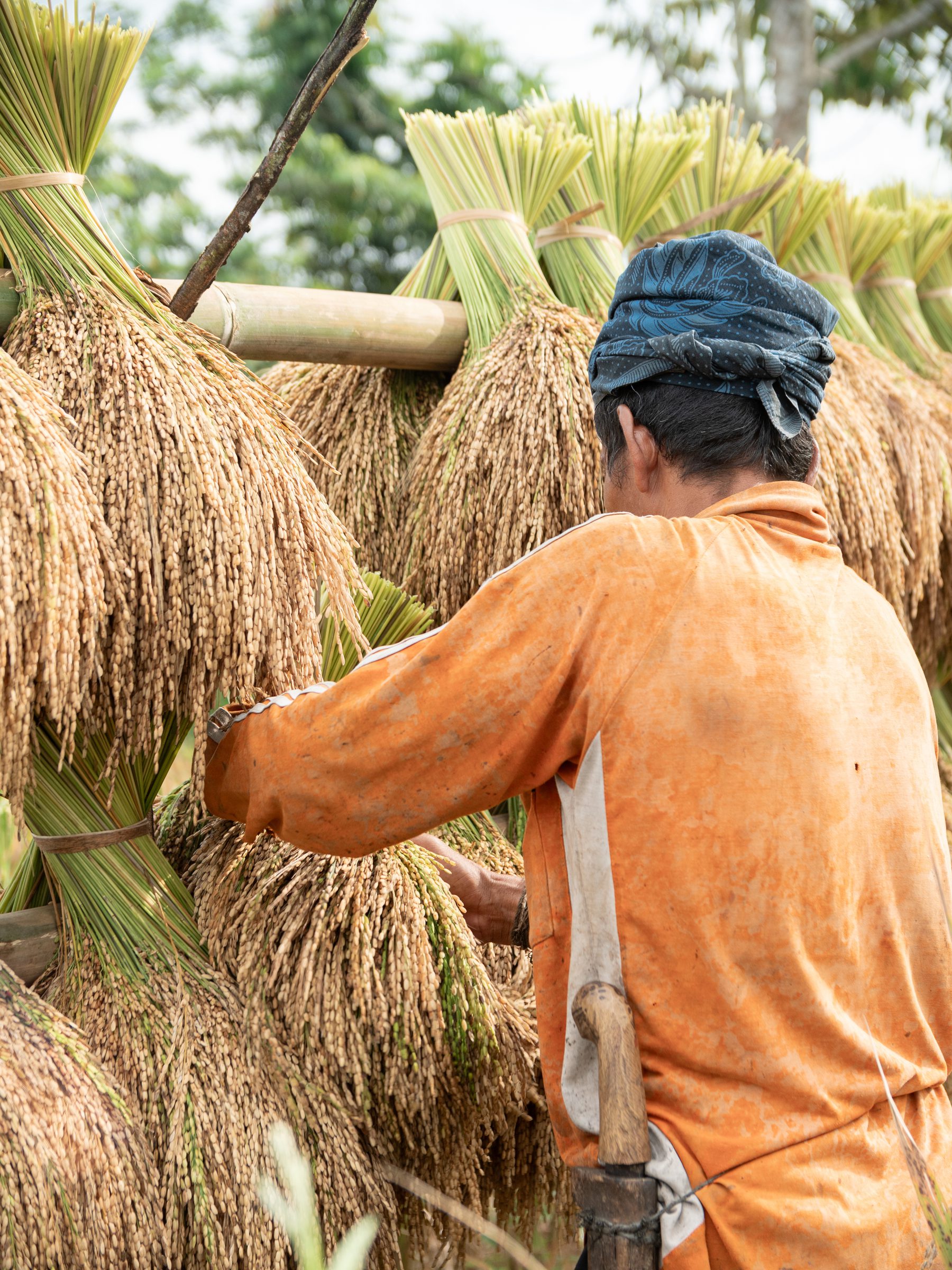
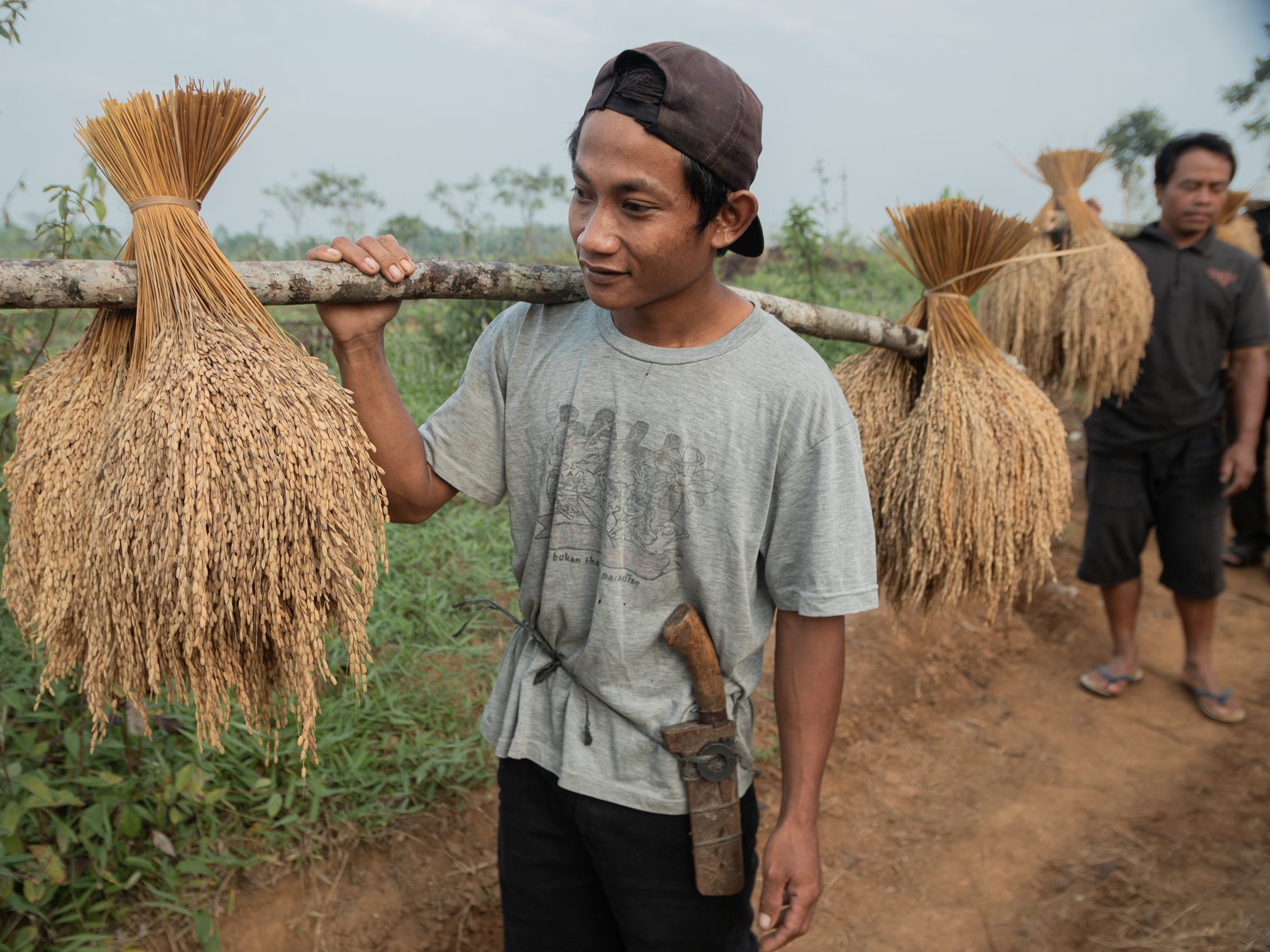
What makes this model powerful is that it begins from the ground up. “The fund supports 60 percent,” says KPA Secretary General Dewi Kartika. “The other 40 percent comes from the community itself.” Rather than replacing local knowledge, the Nusantara Fund supports and strengthens it.
“Their initiatives are planned and developed together at the grassroots level. So, the ideas they discuss are built collectively,” says Ode Rakhman, director of the Nusantara Fund.
Across Indonesia, P2B’s success is inspiring other communities to organize and reclaim their futures. Their story shows what is possible when resources reach the hands of those closest to the land. Land is not just territory. It is life, memory, and a path forward.
Learn more about our grantee partner, the Nusantara Fund.



